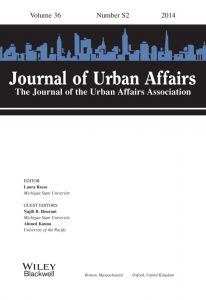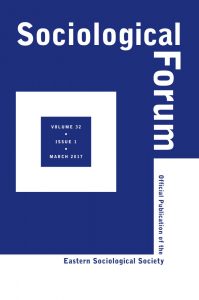Social innovation in crisis-shaken villages
Villages are rarely seen as centers for innovation. However, empirical research shows evidence of innovative activities taking place even in crisis-shaken rural regions. Anika Noack and Tobias Federwisch consider three initiatives, which aim to overcome local problems with socially innovative ideas. In doing so, the authors reveal external impulses by intermediates as crucial for social innovation. The rural municipality of ‘Kremmen’ (an anonymised name for the municipality involved in the study) was once a flourishing tourist destination in the Eifel...




















1754-9469/asset/society_affiliation_image.gif?v=1&s=9197a1a6ba8c381665ecbf311eae8aca348fe8aa)